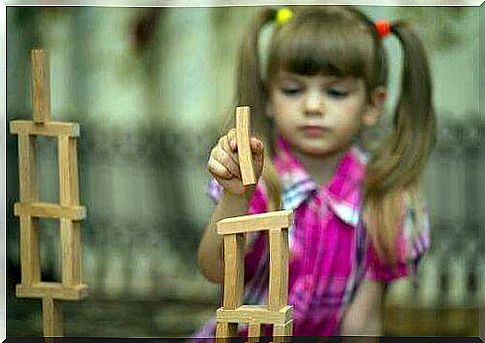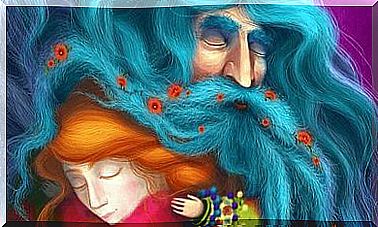Autistic Child And Symbolic Play

Autism is a neurobehavioral developmental disorder that makes it difficult for a person to communicate and learn social skills. An autistic child is characterized by limited interests and repetitive behaviors. In many cases, these symptoms can cause the symbolic play to be difficult for the child and its development to be difficult.

What does symbolic play mean?
Symbolic play is the creation of scenarios that simulate daily life or are based on things a child knows, such as stories and movies. In symbolic play, toys and objects can be utilized or the child can take on a role to play. Through symbolic play, the child reflects on what he or she has learned from the world and how he or she interprets what he or she has learned.
Symbolic play is one of the most common games in childhood. It is one of the best ways to express yourself, and in addition, it develops a child’s creativity and imagination.

The development of symbolic play
Pre-symbolic play begins to develop when the child is over a year old. At this point, the child begins to use simple objects and toys. In this way, the child wants to pretend to be something or someone else. For example, a child plays with his drink from an empty glass or makes a phone call.
Little by little, being about two years old, the child begins to introduce other toys – such as dolls – alongside these items. The child begins to imitate what he sees, for example, by playing with a doll. After this, the child starts playing role-playing games, ie he or she presents himself or herself as a teacher, firefighter or doctor, for example.
Over time, the child begins to use more of their imagination and other objects in their games. For example, he might take advantage of a cardboard box by imagining it to be a spaceship or play with a stick that turns into a magic wand.
By the age of four, play becomes more diverse. The child invents more detailed and multi-character games. In short, the symbolic play thus begins to develop early in childhood and continues through childhood.

Symbolic play and autism
As already mentioned, the ability to create stories through the imagination begins to develop when a child is about two years old. This ability is considered innate, and it gradually develops and eventually becomes a whole theory of mind. However, this is not the case for all children.
An autistic child may have difficulty developing his or her imagination, and he or she may need a little more help to reach his or her potential.
Here are some strategies that can help develop and stimulate symbolic play in an autistic child:
- Teach your child to play with objects and toys. Ask him to imitate you and your play.
- Play role-playing games with your child.
- Create a script and have the child implement it with you by playing.
- Ask the child to create a story with you.
An autistic child can develop their symbolic play. So help your child with games and stories and you will also notice an improvement in your child’s social skills.









